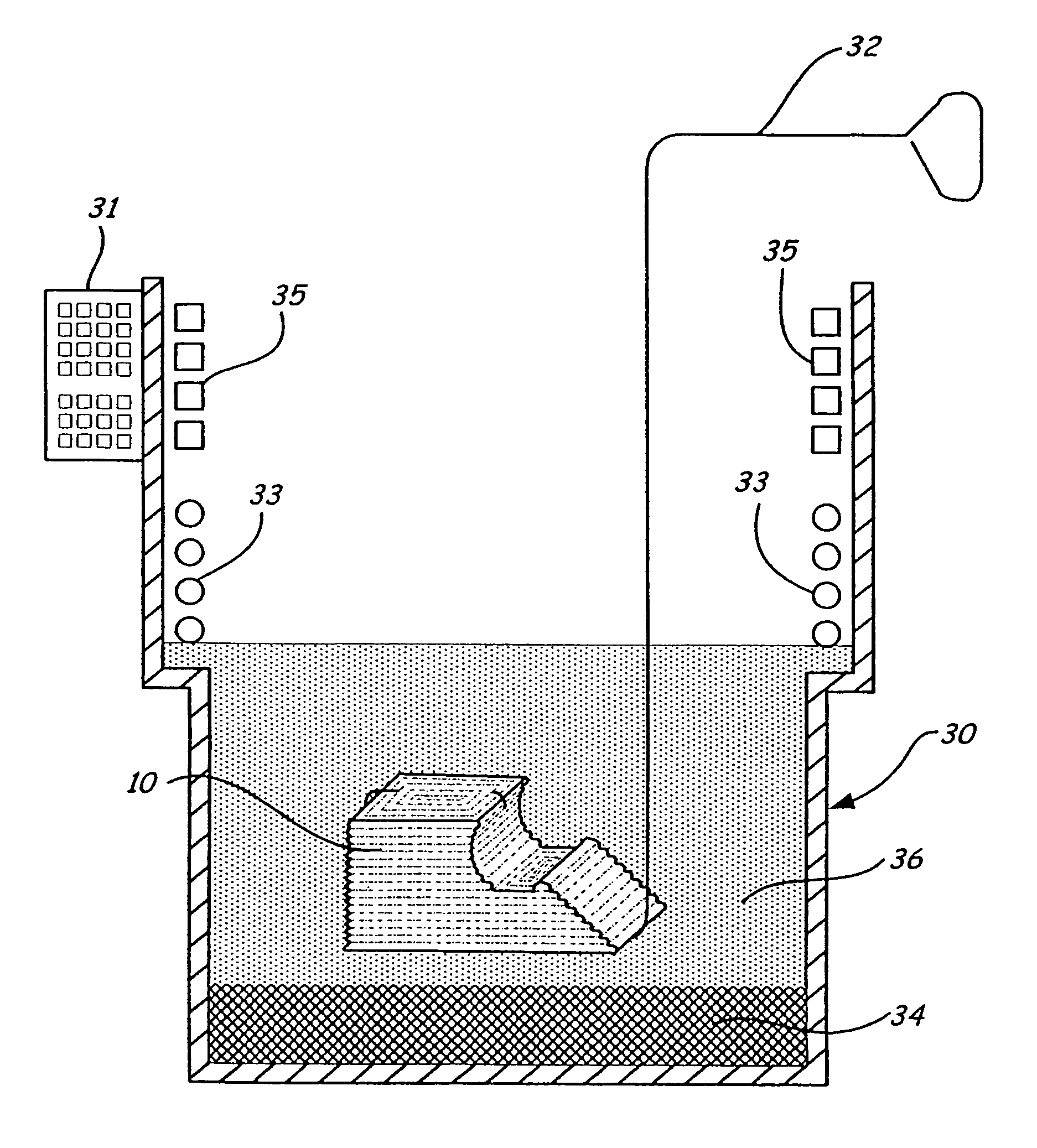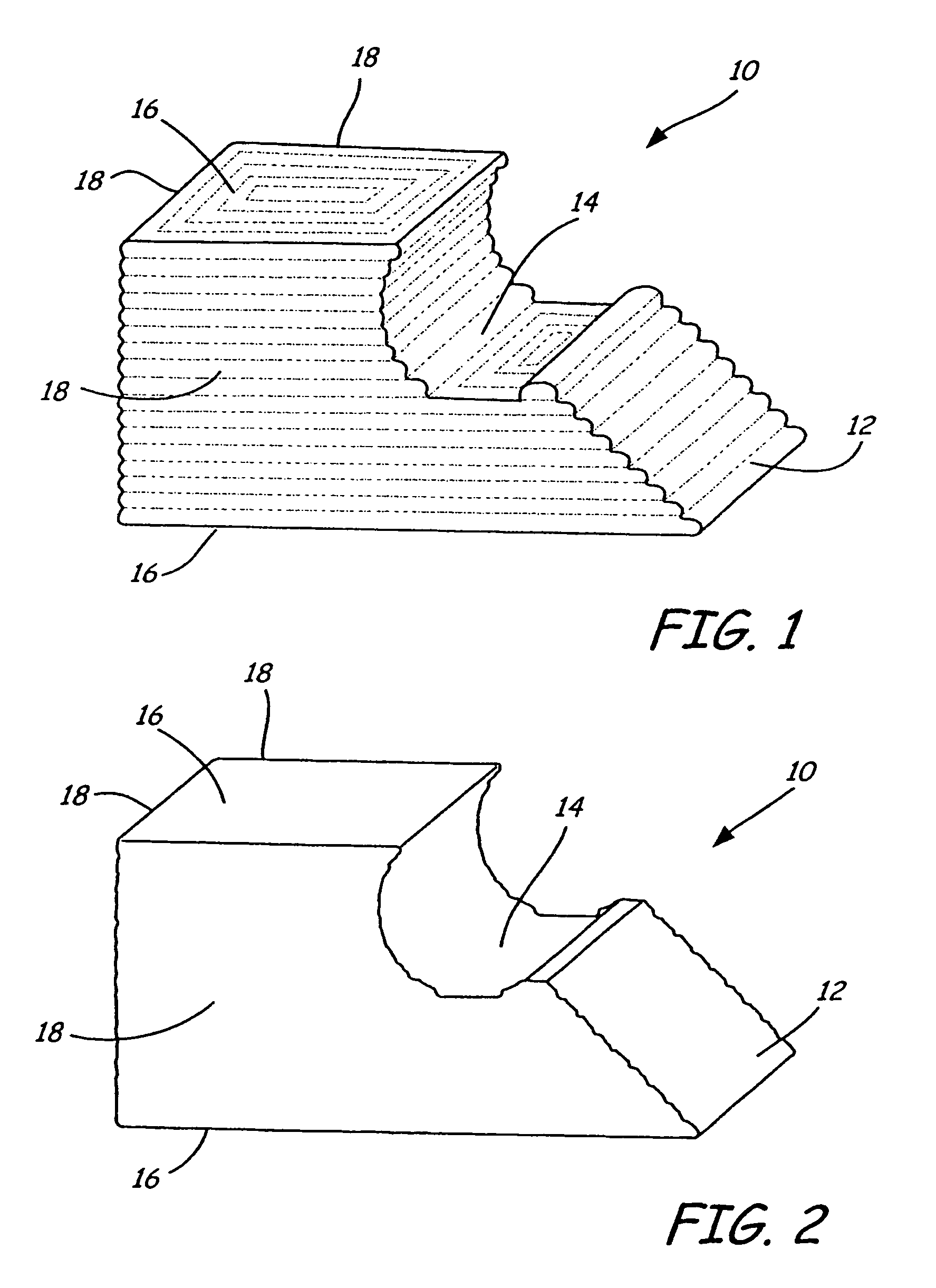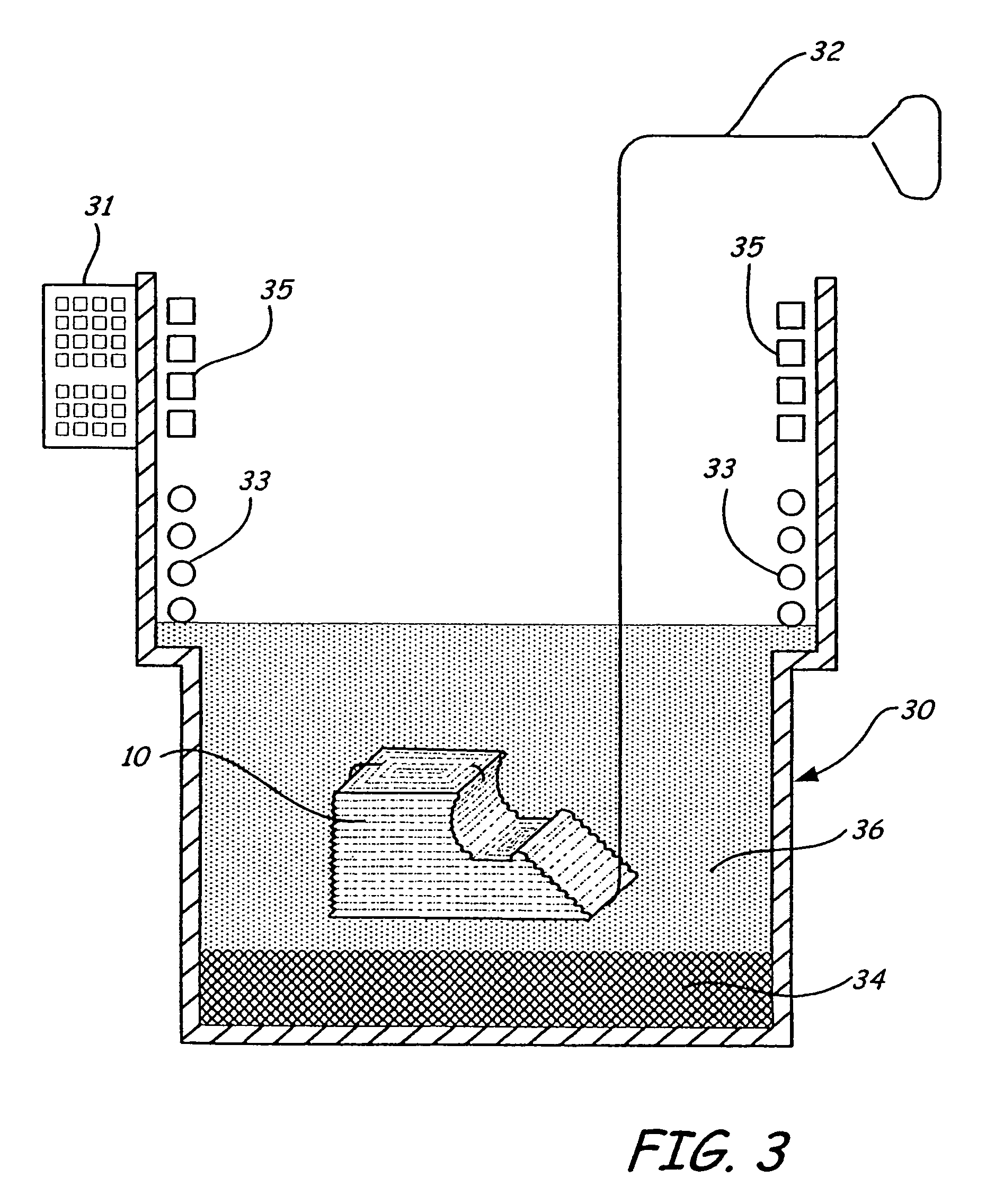Smoothing method for layered deposition modeling
a layer manufacturing technique and smoothing technology, applied in the field of rapid prototyping, can solve the problems of affecting the appearance, affecting the smoothing effect of layered manufacturing techniques, and causing errors
- Summary
- Abstract
- Description
- Claims
- Application Information
AI Technical Summary
Benefits of technology
Problems solved by technology
Method used
Image
Examples
Embodiment Construction
[0024]The method of the present invention may be employed with respect to objects formed from a polymeric or wax material using layered manufacturing rapid prototyping techniques. An exemplary layered manufacturing technique is the type disclosed in U.S. Pat. No. 5,121,329, wherein an extrusion head deposits “roads” of molten material in layers of predetermined shape, and which material solidifies upon a drop in temperature to form a solid model.
[0025]FIG. 1 shows an exemplary object 10, formed by a layered manufacturing rapid prototyping technique. The object 10 has an angled surface 12, a curved surface 14, two horizontal surfaces 16, and three vertical surfaces 18. In another embodiment, the object may be a mold tool for use in making prototype plastic injection molded parts, such as is disclosed in International Application No. PCT / US03 / 010219 entitled “Layered Deposition Bridge Tooling”, S. Crump and J. Hanson, filed on even date herewith and assigned to the same assignee as th...
PUM
| Property | Measurement | Unit |
|---|---|---|
| weight percent | aaaaa | aaaaa |
| porosity | aaaaa | aaaaa |
| surface geometry | aaaaa | aaaaa |
Abstract
Description
Claims
Application Information
 Login to View More
Login to View More - R&D
- Intellectual Property
- Life Sciences
- Materials
- Tech Scout
- Unparalleled Data Quality
- Higher Quality Content
- 60% Fewer Hallucinations
Browse by: Latest US Patents, China's latest patents, Technical Efficacy Thesaurus, Application Domain, Technology Topic, Popular Technical Reports.
© 2025 PatSnap. All rights reserved.Legal|Privacy policy|Modern Slavery Act Transparency Statement|Sitemap|About US| Contact US: help@patsnap.com



